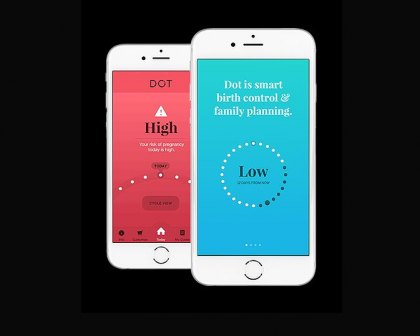Researchers to study birth control app
The app, called Dot (Dynamic Optimal Timing), has been available for about a year and allows users to track their most fertile days of the month with just a glimpse at a smartphone. The website for the app describes it as a way to track periods and predict or prevent a pregnancy.
Last week, Georgetown University Medical Center's Institute for Reproductive Health announced that researchers want to study the app, developed by Cycle Technologies, and are in the process of recruiting 1,200 women for their research.
Women with the app are asked to enter the starting date of their last period. With that information, the app uses a statistical calculation to figure out a woman’s chance of conceiving. Based on the woman’s cycle, it offers a status, for example, the alert “HIGH” if she is likely to conceive.
Using the menstrual cycle to predict fertility brings to mind natural family planning, a method already widely known and used long before smartphones and apps. The problem with natural family planning has been the dependency on a couple's calculations. Out of every 100 couples who use natural family planning to prevent pregnancy each year, 25 may become pregnant, according to the U.S. Department of Health and Human Services.
The department’s website notes, “Fertility awareness can be an effective type of birth control if more than one method is used, and if they are always used correctly. This may include use of condoms or other barrier methods during potentially fertile times of the menstrual cycle.”
The Dot app uses advances in statistical analysis along with the power of computers, according to its website. The statistics upon which Dot is based include a detailed fertility analysis of about 1,000 women in six geographical settings, according to an Institute of Reproductive Medicine news release.
The Georgetown study will explore Dot’s effectiveness. It will also collect information on how the app might affect a couple’s relationship and whether women tire of using it. Participants in the study will be interviewed four times during a year and will answer pop-up questions that appear in the app.
Women who have downloaded the app and are using it to avoid pregnancy will be asked to participate.
Related:
In brief: Twin birth rate reaches new high
If you would like to comment, give us a shout, or like us on Facebook and tell us what you think.


